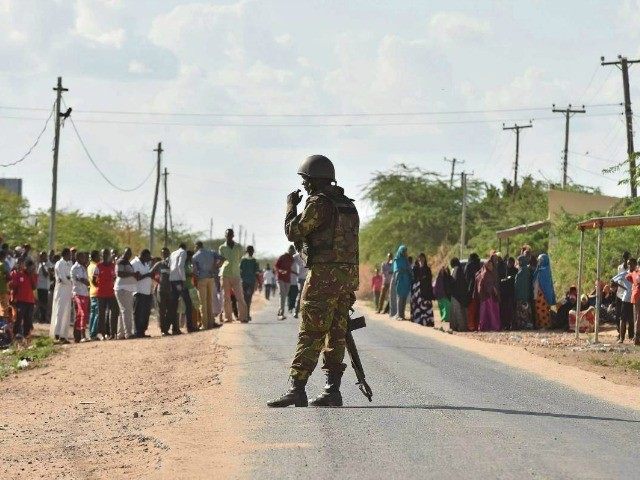Authorities have begun to piece together the planning and execution of last week’s bloody terrorist attack on Kenya’s Garissa University. Among the slain Al Shabaab gunmen– whose bodies remain publicly displayed in the town– is believed to be a university security guard and the son of a Kenyan public official.
Four gunmen stormed the Garissa University campus on Thursday, killing 148 people and injuring more than 100 others. The government has revealed the full identity of only one of the attackers: Abdirahim Abdullahi, the son of a government chief in Mandera county, Kenya. Abdullahi, an ethnic Somali, disappeared in 2013 after graduating with a law degree from the University of Nairobi, according to Reuters.
While the name of Abdullahi’s father has not been reported in the media, his conversion to radical Islam has become a widely-reported story. Officials told Reuters that the father reported Abdullahi missing after his graduation and warned that he believed his son had been exposed to radical Islamist ideas. Speaking anonymously to the Kenyan newspaper Standard Media, a relative of Abdullahi confirmed that the family had disowned him upon suspecting his ties to radical Islam, and that they were not mourning him, but the victims of the attack in which he participated.
“We have a son who has been missing since 2013. We have reported his disappearance to the police. If it is true he is one among the killed terrorists, we wish worse should have happened to him,” the relative told the Standard. The relative added that the family was “not bothered by his death,” but “shocked by the number of innocent, promising human souls they have cut short in the most brutal way and the bad name they have given to the family. We mourn with the families who lost their loved ones at the hands of the terrorists.”
Standard notes that a former friend of Abdullahi described his pre-Al Shabaab identity as that of a “brilliant upcoming lawyer.”
That a professional with an advanced degree from a prominent political family is the face of the Garissa University attack raises significant questions regarding claims made repeatedly by Obama administration officials that poverty is a key trigger attracting jihadists to mass murder.
Officials partially disclosed the identity of one of the other four gunmen, a man believed to have been working at Garissa University as a security guard. The BBC notes that five others have been arrested attempting to flee into Somalia, believed to be Al Shabaab members involved in the planning of the attack. Among them, the outlet notes, is “a Tanzanian national with no known links to the university,” indicating that the scope of recruitment for the Somali terrorist group is larger than previously anticipated.
Student survivors of the attack have noted to several news outlets that they had previously raised security concerns with officials, as Al Shabaab had been transparent in its desire to attack the school. Inter Press Service describes the school as “a known target for the fury” of Al-Shabaab, down to “recent warnings of an Al-Shabaab attack at Garissa and other universities.” At least one student told the BBC that, on at least one occasion last year, students requested increased security on campus. Another student noted that the claims that one of the gunmen was a security guard himself were credible, as the gunmen had clear knowledge of the campus’s layout.
Academic officials are concerned that this will be but the first in a string of attacks on Kenya’s institutions of learning. Speaking to The Standard, Kenya Secondary School Heads Association (KESSHA) Chairman John Awiti said officials were “very concerned” that many other campuses are just as exposed to jihadist threats. While noting that increased police presence at campuses may be a financial burden on the nation, he nonetheless demanded officers “trained well enough to read signs and relay information well to the administration and the authorities.”
Al Shabaab has threatened further attacks capitalizing on the fear induced by the massacre at Garissa. “Kenyan cities will run red with blood,” the group said in a statement following the attack, “No amount of precaution or safety measures will be able to guarantee your safety, thwart another attack or prevent another bloodbath.”
The Kenyan government has vowed a robust response, and has sent its air force to begin air strikes in Somalia targeting Al-Shabaab strongholds. According to a Kenyan government spokesman, strikes continued through Monday morning.

COMMENTS
Please let us know if you're having issues with commenting.